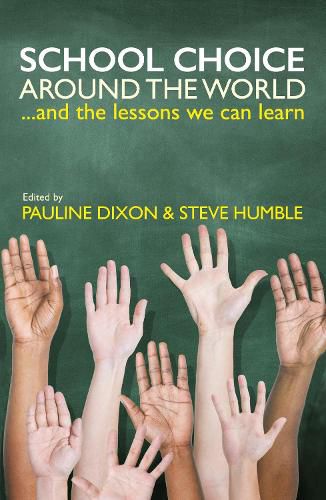Readings Newsletter
Become a Readings Member to make your shopping experience even easier.
Sign in or sign up for free!
You’re not far away from qualifying for FREE standard shipping within Australia
You’ve qualified for FREE standard shipping within Australia
The cart is loading…






This volume of essays examines the empirical evidence on school choice in different countries across Europe, North America, sub-Saharan Africa and South Asia. It demonstrates the advantages which choice offers in different institutional contexts, whether it be Free Schools in the UK, voucher systems in Sweden or private-proprietor schools for low-income families in Liberia. Everywhere experience suggests that parents are “active choosers’: they make rational and considered decisions, drawing on available evidence and responding to incentives which vary from context to context. Government educators frequently downplay the importance of choice and try to constrain the options parents have. But they face increasing resistance: the evidence is that informed parents drive improvements in school quality. Where state education in some developing countries is particularly bad, private bottom-up provision is preferred even though it costs parents money which they can ill-afford. This book is both a collection of inspiring case studies and a call to action.
$9.00 standard shipping within Australia
FREE standard shipping within Australia for orders over $100.00
Express & International shipping calculated at checkout
This volume of essays examines the empirical evidence on school choice in different countries across Europe, North America, sub-Saharan Africa and South Asia. It demonstrates the advantages which choice offers in different institutional contexts, whether it be Free Schools in the UK, voucher systems in Sweden or private-proprietor schools for low-income families in Liberia. Everywhere experience suggests that parents are “active choosers’: they make rational and considered decisions, drawing on available evidence and responding to incentives which vary from context to context. Government educators frequently downplay the importance of choice and try to constrain the options parents have. But they face increasing resistance: the evidence is that informed parents drive improvements in school quality. Where state education in some developing countries is particularly bad, private bottom-up provision is preferred even though it costs parents money which they can ill-afford. This book is both a collection of inspiring case studies and a call to action.